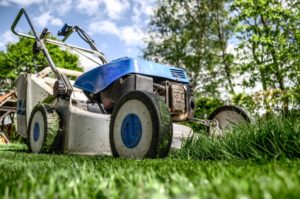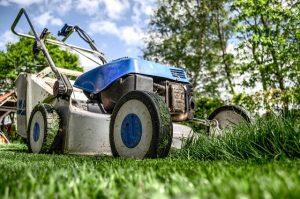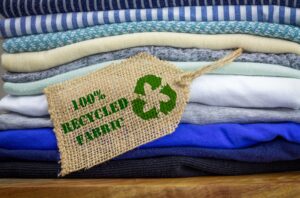Eggshell Recycling and Sustainable Chicken Gardening

Ever heard your grandparents talk about using eggshells and chickens in the garden? These time-tested methods are helping folks grow sustainably.
This guide shows how to start recycling eggshells and chicken litter the natural way. By bringing shells back to nourish the soil and directing coop scraps, you’ll boost garden health while protecting the earth. Chickens love eating bugs and leftovers, then use their “fertilizer” to enrich beds. Eggshells supply key minerals back to the dirt and hens.
When added to their feed, eggshells link up with chicken litter in a full circle. Hens snack on shells with their scraps and transform both into potent plant foods through fertilizer. This sharing makes for big perks with fewer store trips – from healthier plants to happy bug-munching chickens!
Learn the science behind shells and hens, simple DIY projects, plus real success stories showing anyone can do it. Whether new or known in the garden, apply tips for generous soil, robust growth, and bountiful crops in partnership with nature once more! Cultivate naturally with the community.
Understanding Eggshells
Composition of Eggshells
Eggshells are primarily composed of calcium carbonate in the form of calcite and aragonite. They also contain trace amounts of magnesium and other beneficial minerals. The shell serves to protect the developing chick and acts as a calcium depot for it to draw from during hatching.
Nutrient Value of Eggshells
When crushed and added to soil, eggshells boost calcium levels, essential for strong plant cell walls and overall growth. As eggshells break down over time, they continue releasing calcium gradually to feed soil microbes and feed crops for up to a year. Calcium deficiency in soil is surprisingly common, so eggshells provide an organic solution.
Benefits of Recycling Eggshells in Gardening
By recycling eggshells as a garden amendment, gardeners can enjoy benefits like increased yields, healthier plants, and reduced plant stress. Eggshells prevent blossom end rot in tomatoes and mitigate magnesium and calcium deficiencies in a wide range of fruits and vegetables. They also raise soil pH in acidic soil while buffering against fluctuating pH levels.
The Process of Eggshell Recycling
Collection and Cleaning
Rinse eggshells under water as soon as possible after use to prevent smells. Let dry completely before storing in an airtight container.
Crushing and Grinding
Once eggshells are fully dried, crush them into small pieces using a mortar and pestle or electric coffee grinder. The smaller pieces will break down faster in the soil.
Application in the Garden
Scatter crushed eggshells around plants or work them into the top 1-2 inches of soil. They do not need to be composted first and can simply be added to garden beds, containers, or compost piles. Deeper soil incorporation helps shells break down more quickly over several seasons to continually supply calcium.
When added to the compost pile, eggshells increase nitrogen absorption to aid decomposition. The compost mixture can then be applied to soil as a nutrient-dense amendment boosting soil structure. Eggshells also offer benefits when used as a mulch layer on top of soil to retain water while deterring pests like snails.
Chickens as Garden Helpers
Chickens’ Natural Behavior
As natural foragers, chickens consume many common garden pests like snails, slugs, and insects. They also till the soil with their claws and beaks while scratching for bugs and worms. This aerates the topsoil without using gas-powered equipment.
Benefits of Chickens in Garden Management
With targeted free-range access, chickens can turn your garden into a naturally pest-resistant zone. Their droppings act as nutrient-dense fertilizers to feed plants and soil microbes. Chickens also consume food scraps and kitchen waste to reduce food waste sent to landfills.
Coop Design and Placement
Providing a movable coop equipped for perching, nesting, and roosting allows the chickens’ access to be easily shifted between planting beds. Coops should be high-sided to deter predators yet accessible for daily care and egg collection.
Combining Eggshell Recycling and Chickens
Synergy of Eggshells and Chickens
When eggshell recycling is incorporated thoughtfully into chicken management, it enhances the whole system. Eggshells provide extra calcium for hen diets and stronger eggshells, while chickens efficiently spread crushed eggshells through their natural scratching and fertilizing habits.
How to Introduce Eggshells to Chickens’ Diet
Crush eggshells finely and add small amounts directly to layer feed or scatter in coops and run areas. Chickens will consume the bits of shell fortifying their calcium reserves. Eggshells also alkalize the pH of chicken yards and runs.
Managing Chickens’ Waste
Rather than being hauled away, chicken manure can be collected regularly and composted with crushed eggshells to create a nutrient-dense soil amendment infinitely better than any store-bought fertilizer. Fully composted, the mixture creates no runoff or pollution risks when applied to plants.
Garden Waste Management Techniques
Composting with Chicken Manure
Chicken manure is loaded with nitrogen to fuel composting microbes. Combined with carbon-rich materials like eggshells, leaves, and straw in a bin or pile, it offers ideal conditions for rapid decomposition into high-quality compost.
Using Eggshells in Compost
As mentioned, eggshells increase compost porosity aiding aeration and drainage. Their alkalinity also balances pH, while calcium binds nutrients like nitrogen for steady plant feeding. Eggshells shouldn’t exceed 5% of the overall volume.
Creating Mulch from Garden Waste
Shredded plant materials, spoiled hay, or straw can be laid around plants conserving moisture and suppressing weeds. Over time, this organic mulch enriches the soil as it breaks down, preventing waste.
DIY Projects for Eggshell Recycling
Eggshell Seed Starters
Crush eggshells finely and add a small amount to seed starting mixes or biodegradable pots to provide ongoing calcium. The shells can be planted directly in the soil once seedlings are strong.
Eggshell Garden Art
Clean whole eggshells can be strung, stacked, or molded into decorative accents like wind chimes entertaining kids and adults alike.
Eggshell Pest Deterrents
Finely crushed shells scattered around vulnerable plants or mixed with companion plants repel slugs and snails without chemicals. Renew the barrier after rain to maintain its abrasive texture and pest-deterring properties.
Case Studies
Successful Eggshell Recycling Gardens
Many amateur and expert gardeners report success in reducing deficiencies, boosting yields, and building healthy soil through sustained eggshell recycling programs tailored to their specific growing conditions.
Real-Life Chicken Garden Waste Management Examples
Permaculture farms illustrate how integrating chickens, plants, and upcycled wastes creates closed-loop, high-yield growing systems requiring minimal external inputs. Their success inspires more sustainable approaches.
Tips for Effective Eggshell Recycling and Garden Waste Management
Dos and Don’ts
DO rinse shells well. DO crush finely. DO consider chickens’ diets. DO fully compost manure. DON’T overapply eggshells which could raise pH too high.
Maximizing Nutrient Value
Proper composting unlocks shells’ and manures’ locked-up nutrients. Avoid tilling which distributes benefits more quickly but disrupts soil biology.
Troubleshooting Common Issues
pH problems are usually temporary and solved by adjusting ratios. Pests may perseverance and changing techniques. Communicate with experts for rare larger issues. Most problems are preventable with due diligence.
Environmental Impact
Reducing Landfill Waste
By collecting eggshells and food scraps for gardens rather than trash, we shrink our landfill contribution and dependence on synthetic inputs.
Reducing Chemical Fertilizer Usage
Homegrown amendment from eggshells and chicken manure provides free, balanced nutrition to plants reducing the need for manufactured fertilizers.
Carbon Footprint Reduction
Local, organic practices requiring no processing or transport emit fewer greenhouse gases compared to industrially farmed alternatives. Sustainable techniques help mitigation efforts.
It’s Time to Start Your Sustainable Garden Revolution!
Through eggshell recycling and harnessing chickens as part of our garden ecosystem, people can now care for soil and plants naturally while reducing waste. By following the techniques outlined in this guide, gardeners of any experience level can start their sustainable programs. Give it a try this season – you have everything to gain from abundant harvests, greater self-sufficiency, and lighter environmental impact. The planet and your wallet will thank you! Begin your sustainable gardening journey today.






